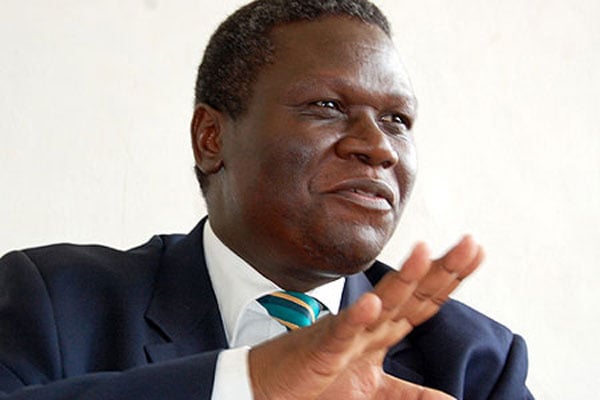Carrots, eggs, coffee beans and politics of transition

Norbert Mao
What you need to know:
- We have to deal with the cracks at the foundation of our country. And (it has to be said) the incumbent has to be part of it. With goodwill bitter rivals can become partners in designing the future
The answer to the things that worry us is a planned transition. It will heal the gaping wounds on the body of our Constitution and generate mutual goodwill. Ugandans expect to see change without bloodshed! That is only possible if we start the difficult conversations we have been avoiding.
We have to deal with the cracks at the foundation of our country. And (it has to be said) the incumbent has to be part of it. With goodwill bitter rivals can become partners in designing the future. We must let Uganda win. Political rivalry shouldn’t degenerate into State terrorism.
To make my point about the need for a change of heart by President Museveni, let me tell a little story I heard long ago: A struggling young woman went to see her mother. She wanted to tell her mother that life had become unbearable. Everyone misunderstood her.
Her friends had deserted her. Everything seemed so hard.
She wondered when her suffering would end and how she could find her bearing in the world where everything she touched seemed to turn to dust. She was simply tired of the endless fights. She was on the verge of giving up when her mother opened the front door to let her in.
Her mother hugged her and held her by the hand and took her to the kitchen. She took out three saucepans and filled them with water. She put carrots in the first saucepan, eggs in the second and coffee beans in the third one. She let the three saucepans boil. After 20 minutes, she turned out the gas burners. She ladled out the carrots, eggs and coffee beans and put them in separate bowls.
She then turned to her daughter and asked her what she saw. “Carrots, eggs and coffee,” she answered. She asked the daughter to come closer and feel the carrots. She did and told her mother that they were soft. Her mother then asked her to pick up an egg and break it. She peeled off the shell and realised that the egg was hard-boiled. The mother then asked her daughter to take a sip of the coffee. The rich aroma of the coffee left the daughter with a smile on her face.
But the daughter wondered what the point of the whole thing was. Her mother told her that each of the things in the bowl had faced the same tribulation – boiling water – but each had responded uniquely and differently. Before being subjected to boiling water, the carrot was hard, strong, unrelenting and defiant.
But after being boiled it became weak and soft. The egg started out weak and soft but putting it in water and boiling it had become hardened inside. The coffee beans were, however, different. When put in boiling water they were able to change the colour of the water instead.
“Which are you my daughter?” she asked. “When faced with trials and tribulations how do you take it and deal with it? Are you a carrot, an egg or a coffee bean?”
Leaders are like that when faced with adversity. Some seem tough but frustration, pain and suffering can cause them to wither, become soft and weak. Others are like the egg which starts with a soft heart but when subjected to pressure and heat become hard-hearted.
On the outside they may look unchanged but inside harbour a bitter spirit and a hard heart. Others are like the coffee bean that embraces the hot water and changes it. The hotter the water becomes, the more it releases its sweet aroma and flavour. Such leaders get better (not bitter) and change the circumstances around them no matter how bad things get. They nullify adversity by elevating themselves to another level.
As Uganda faces its defining moment with the restless youth seeking new solutions to old problems, a political class stuck in a logjam where the gun seems to be the major arbiter of power and a population weary of broken promises, will the man at the helm be a carrot, an egg or a coffee bean?




